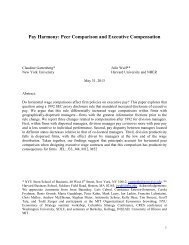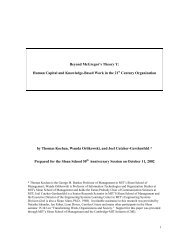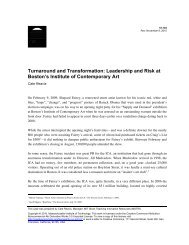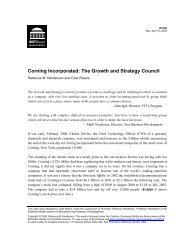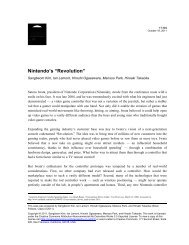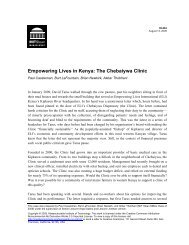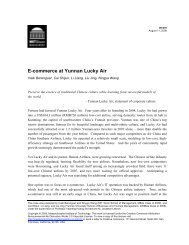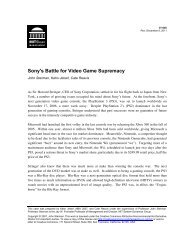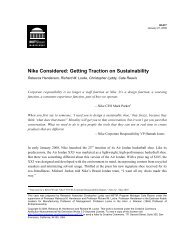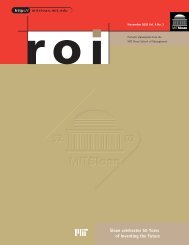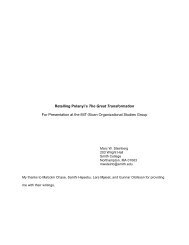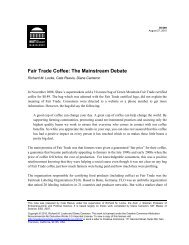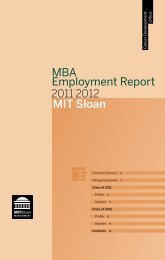Understanding earnings quality - MIT Sloan School of Management
Understanding earnings quality - MIT Sloan School of Management
Understanding earnings quality - MIT Sloan School of Management
Create successful ePaper yourself
Turn your PDF publications into a flip-book with our unique Google optimized e-Paper software.
importance <strong>of</strong> implicit claims, they propose that implicit customer claims are positively associated<br />
with product uniqueness, and they measure variation in uniqueness by R&D expense. Rosner (2003)<br />
finds that firms that subsequently declare bankruptcy have greater income-increasing abnormal<br />
accruals compared to a matched sample and suggests that the firms engaged in <strong>earnings</strong> management<br />
in an effort to avoid bankruptcy.<br />
5.6.6 Summary<br />
Capital regulations, specifically in the banking and insurance industries, provide strong<br />
incentives to manage <strong>earnings</strong>, and loss provisions are most commonly used to meet these<br />
regulations. Other incentives are <strong>of</strong> second-order importance when capital requirements are likely to<br />
be binding. 69<br />
The studies document that firms manage discretionary accruals during periods <strong>of</strong> heightened<br />
pressure (either external or internal) or in response to specific regulatory changes. Thus, the results<br />
suggest that <strong>earnings</strong> <strong>quality</strong> is time-varying. External factors such as changing pressures from<br />
antitrust regulation during merger discussions will create firm-specific time-varying EQ patterns.<br />
However, the majority <strong>of</strong> the external factors discussed are clustered in calendar time (e.g., the TRA<br />
or bank capital requirement changes) and the resulting effects on EQ will be clustered in calendar<br />
time as well. External factors that affect accounting method choice, in contrast, will lead to cross-<br />
sectional variation in EQ, but not time-variation (Calegari, 2000; Klassen, Lang, and Wolfson,<br />
1993).<br />
69 This conclusion on net worth requirements, however, may not generalize to other settings. The financial services<br />
industry has greater power to detect specific <strong>earnings</strong> management responses to regulations given the direct link between<br />
the capital requirements and the loss provision accounts and the significance and variation <strong>of</strong> the loss provision accounts<br />
across banks/insurance carriers.<br />
118



